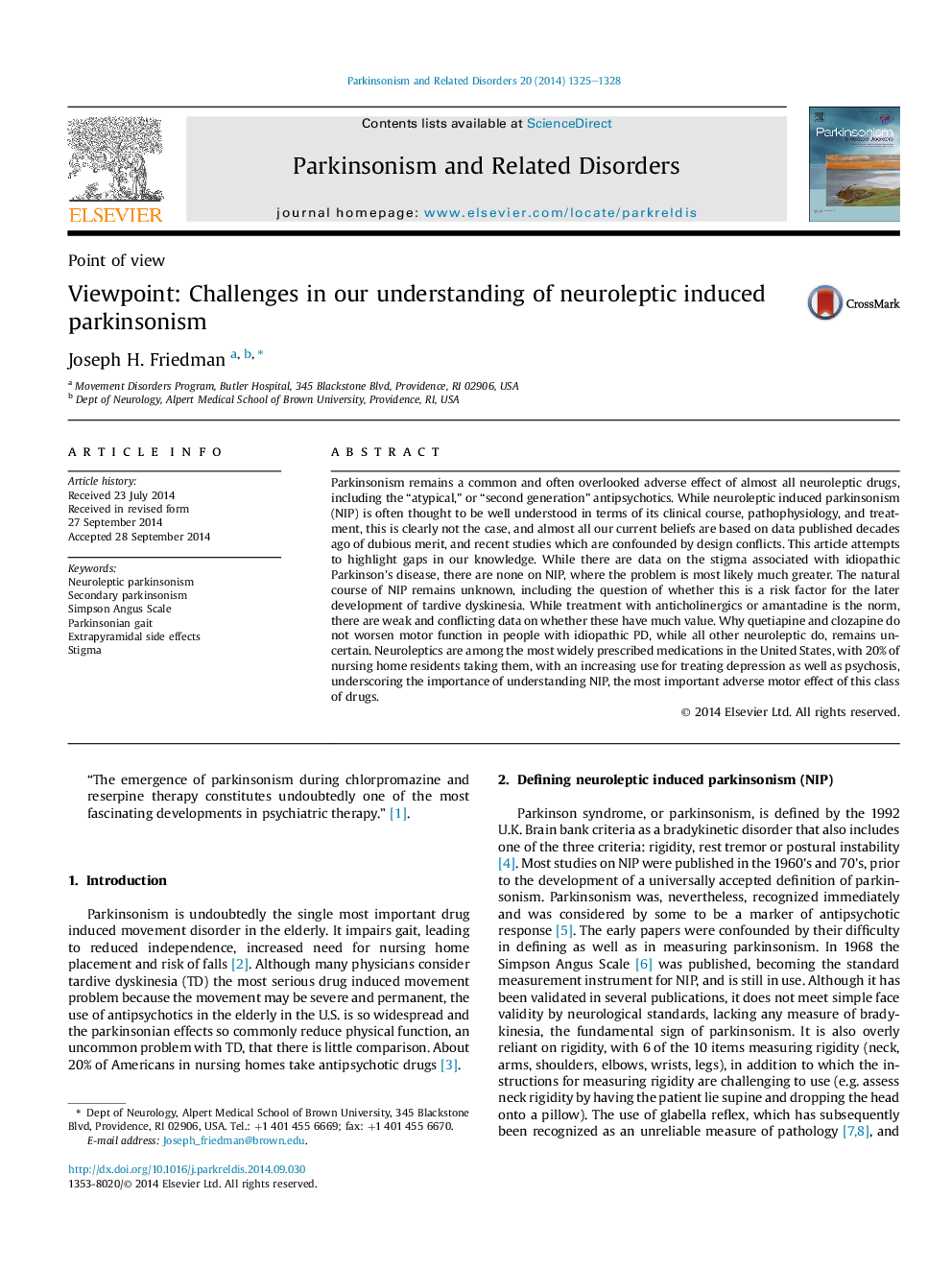| کد مقاله | کد نشریه | سال انتشار | مقاله انگلیسی | نسخه تمام متن |
|---|---|---|---|---|
| 8286122 | 1535828 | 2014 | 4 صفحه PDF | دانلود رایگان |
عنوان انگلیسی مقاله ISI
Viewpoint: Challenges in our understanding of neuroleptic induced parkinsonism
ترجمه فارسی عنوان
دیدگاه: چالش های درک ما از پارکینسونی ناشی از نورولپتیک
دانلود مقاله + سفارش ترجمه
دانلود مقاله ISI انگلیسی
رایگان برای ایرانیان
موضوعات مرتبط
علوم زیستی و بیوفناوری
بیوشیمی، ژنتیک و زیست شناسی مولکولی
سالمندی
چکیده انگلیسی
Parkinsonism remains a common and often overlooked adverse effect of almost all neuroleptic drugs, including the “atypical,” or “second generation” antipsychotics. While neuroleptic induced parkinsonism (NIP) is often thought to be well understood in terms of its clinical course, pathophysiology, and treatment, this is clearly not the case, and almost all our current beliefs are based on data published decades ago of dubious merit, and recent studies which are confounded by design conflicts. This article attempts to highlight gaps in our knowledge. While there are data on the stigma associated with idiopathic Parkinson's disease, there are none on NIP, where the problem is most likely much greater. The natural course of NIP remains unknown, including the question of whether this is a risk factor for the later development of tardive dyskinesia. While treatment with anticholinergics or amantadine is the norm, there are weak and conflicting data on whether these have much value. Why quetiapine and clozapine do not worsen motor function in people with idiopathic PD, while all other neuroleptic do, remains uncertain. Neuroleptics are among the most widely prescribed medications in the United States, with 20% of nursing home residents taking them, with an increasing use for treating depression as well as psychosis, underscoring the importance of understanding NIP, the most important adverse motor effect of this class of drugs.
ناشر
Database: Elsevier - ScienceDirect (ساینس دایرکت)
Journal: Parkinsonism & Related Disorders - Volume 20, Issue 12, December 2014, Pages 1325-1328
Journal: Parkinsonism & Related Disorders - Volume 20, Issue 12, December 2014, Pages 1325-1328
نویسندگان
Joseph H. Friedman,
